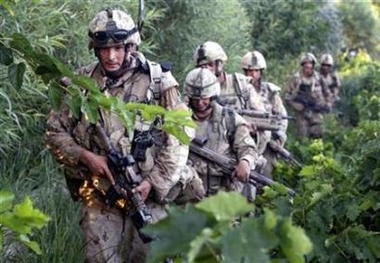
Latest Articles about South Asia
The Road to Lal Masjid and its Aftermath
It is clear that most Pakistanis wanted Lal Masjid (Red Mosque) leader Maulana Abdul Rashid Ghazi to be held accountable for his vigilantism and for trying to enforce his extremist version of Islam on society. The public's views have changed, however, now that it has... MORE

The Taliban Fedayeen: The World’s Worst Suicide Bombers?
Suicide bombing statistics from Afghanistan alarmingly demonstrate that, if the current trend continues, 2007 will surpass last year in the number of overall attacks. While there were 47 bombings by mid-June 2006, there have been approximately 57 during the same period this year. Compounding fears... MORE
Is Zawahiri Striving for Islamist Unity in Preparation for New Attack?
When Homeland Security Secretary Michael Chertoff said he had a "gut feeling" that the United States faces an increased chance of a domestic terrorist attack in the months ahead, he brought into sharp relief the fact that al-Qaeda has been working since 2001 to prepare... MORE
Al-Qaeda’s New Leader in Afghanistan: A Profile of Abu al-Yazid
Al-Qaeda's late-May naming of Mustafa Ahmed Muhammad Uthman Abu al-Yazid as the "general leader" of the group's activities in Afghanistan shows that Osama bin Laden and Ayman al-Zawahiri believe that helping the Taliban win the Afghan war is a top priority. It also suggests that... MORE

Taliban Graduation Ceremony Demonstrates Change of Tactics
Earlier this month, a Pakistani journalist filmed a Taliban "graduation ceremony" for would-be Western suicide bombers. The video, which can be seen at https://www.youtube.com/watch?v=TwwiGXIhnKo, shows a "graduating class of suicide bombers" ready to travel to the United States and Western Europe to carry out suicide... MORE
Despite Positive Poll Results, Afghanistan Heads Toward Violence
Afghanistan is eternally a land of contradictions. From fiery deserts in the south, to vast, frigid and towering mountain ranges in the north, the country's topography and climate act as competing nightmares for civil and military planners and logisticians. The country has a population that... MORE
Al-Qaeda’s American Recruit Releases Something Entirely New
As the 19th anniversary of al-Qaeda's founding nears later in 2007, Western analysts have accumulated an enormous body of primary-source material upon which to base judgments, assessments and predictions. While it is a truism to say that al-Qaeda is a "learning organization"—in the sense that... MORE

Jihadis Post Scenario for the Defeat of the United States
On May 14, jihadi forum users Abu Kandahar and Roslan al-Shami posted a five-point scenario for the collapse of the United States and the rise of the Islamic ummah, entitled, "The Next Strikes in the Heart of America, When and How." It appeared on the... MORE

Al-Qaeda’s Media Doctrine: Evolution from Cheerleader to Opinion-Shaper
Al-Qaeda has always regarded media work as a key weapon in its arsenal, although the group has no claim to originating the use of the media as a weapon for the mujahideen. The Afghan Islamist insurgent organizations—especially Gulbuddin Hekmatyar's Hezb-e-Islami and Ahmad Shah Masoud Jamiat-e-Islami—ran... MORE
A Report from the Field: Gauging the Impact of Taliban Suicide Bombing
The following study is based on field research carried out in the summers of 2003, 2005 and the spring of 2007 in 15 Afghan provinces including: Paktia, Nangarhar (Jalalabad), Panjshir, Balkh (Mazar-i-Sharif), Takhar, Bamiyan, Kabul and Herat. Specific assistance was granted by the United Nations,... MORE